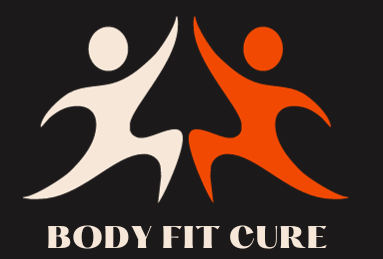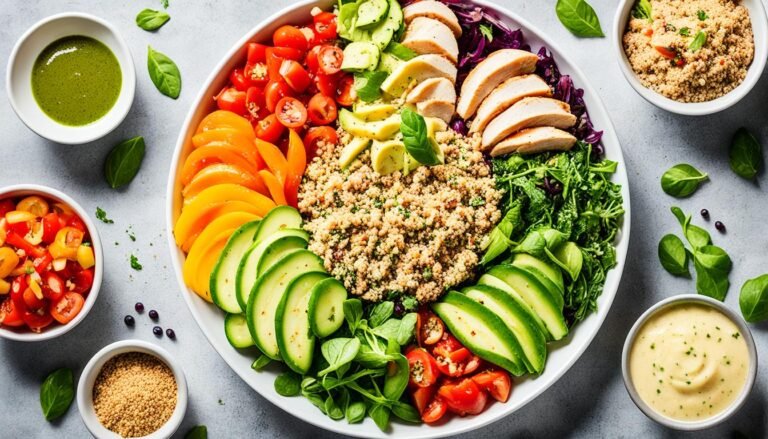In today’s fast-paced life, it’s easy to overlook the importance of our nutritional needs. One vital mineral that often goes unnoticed is zinc. Zinc is an essential mineral that plays a crucial role in various bodily functions, including immune system function, metabolism, and wound healing, among others.
However, despite its importance, many individuals suffer from zinc deficiency, which can lead to numerous health issues. In this comprehensive guide, we will delve into the topic of zinc deficiency. You will learn about the signs and symptoms to watch out for and discover effective remedies to combat this nutritional deficiency.
Key Takeaways:
- Zinc deficiency is a common nutritional deficiency that can lead to health issues.
- Zinc plays a crucial role in various bodily functions, including immune system function, metabolism, and wound healing.
- Recognizing the signs and symptoms of zinc deficiency is essential in diagnosis and treatment.
- Effective remedies for zinc deficiency include dietary changes and supplementation.
- Zinc-rich foods and supplements can help in maintaining adequate levels of zinc in the body.
What is Zinc?
Zinc is an essential mineral and trace element that plays a vital role in various bodily functions. It is required for proper growth and development, immune function, wound healing, and normal taste and smell perception.
Zinc is also essential for DNA synthesis and cell division, making it crucial for the growth and repair of tissues. It is a component of many enzymes and proteins, including those involved in digestion and metabolism.
“Zinc is a trace element that is necessary for a healthy immune system. A lack of zinc can make a person more susceptible to disease and illness.” – Medical News Today
The Importance of Zinc
Zinc is an essential mineral and trace element that plays a crucial role in maintaining a healthy body. It is necessary for various bodily functions, such as wound healing, immune system support, and DNA synthesis. This nutrient is also involved in the metabolism of carbohydrates, fats, and proteins.
Adequate intake of zinc is vital for overall well-being. It helps to maintain healthy skin, hair, and nails and aids in the growth and development of the body.
Functions of Zinc
Zinc is involved in numerous bodily functions and is essential for proper cell growth and division. It plays a significant role in:
- Immune system function
- Protein synthesis
- Enzyme activity
- Wound healing
- Growth and development
- Reproductive health
- Nutrient absorption
- DNA synthesis and cell division
- Sensory perception
With such essential functions of zinc in the body, not getting enough of this nutrient can lead to significant health problems.
“Zinc is a mineral that is essential for the proper functioning of the body. It plays a vital role in various bodily functions and maintaining overall health.”
What Causes Zinc Deficiency?
Zinc deficiency occurs when there is an inadequate intake or absorption of zinc. Understanding the underlying causes and risk factors associated with this deficiency can help individuals take preventative measures.
Causes of Zinc Deficiency
Some of the most common causes of zinc deficiency include:
| Cause | Description |
|---|---|
| Poor diet | Zinc is primarily found in animal products, making it a challenge for vegetarians and vegans to obtain enough zinc through diet alone. In addition, consuming excessive amounts of processed foods or foods high in phytates (such as grains and legumes) can inhibit zinc absorption. |
| Gastrointestinal diseases | Intestinal malabsorption caused by inflammatory bowel disease, Crohn’s disease, or other disorders can impair the body’s ability to absorb zinc. |
| Alcoholism | Excessive alcohol consumption can interfere with zinc absorption and increase zinc excretion through the urine, leading to a deficiency over time. |
| Pregnancy and breastfeeding | During pregnancy and breastfeeding, a woman’s body requires more zinc to support the growth and development of the fetus or infant. Without an adequate intake, a deficiency can occur. |
Risk Factors for Zinc Deficiency
Individuals who fall under the following categories may be at a higher risk of developing zinc deficiency:
- Vegetarians and vegans who do not consume enough zinc-rich foods or supplements
- People with gastrointestinal diseases or other disorders that affect nutrient absorption
- Alcoholics or heavy drinkers
- Pregnant or breastfeeding women
- Individuals with sickle cell disease, diabetes, or other chronic conditions that can impair zinc absorption or increase zinc excretion
By identifying the causes and risk factors associated with zinc deficiency, individuals can take proactive steps towards preventing or treating this nutritional deficiency.
Signs and Symptoms of Zinc Deficiency

Zinc is an essential mineral that plays a crucial role in maintaining a healthy body. When there is a deficiency, it can lead to various signs and symptoms that can indicate an inadequacy of this essential mineral. Here are some of the most common signs of zinc deficiency:
- Hair Loss: Thinning hair or hair loss can be a sign of zinc deficiency. Zinc is essential for promoting healthy hair follicles, and a lack of zinc can cause hair to become brittle and thin.
- Weak Immune System: Zinc plays a key role in maintaining a robust immune system. A deficiency in zinc can lead to frequent infections and a weakened immune response.
- Poor Wound Healing: Zinc is essential for tissue repair and cell growth. A lack of zinc can lead to delayed wound healing and slower recovery times.
- Decreased Appetite: A reduction in appetite is another symptom of zinc deficiency. This can lead to a reduced intake of zinc, worsening the deficiency.
- Delayed Sexual Maturation: Zinc is necessary for sexual maturation and reproductive health. A deficiency in zinc can lead to delayed puberty and reproductive problems.
Other symptoms of zinc deficiency may include skin rashes, diarrhea, and neurological problems.
If you are experiencing any of these symptoms or suspect you may have a zinc deficiency, it is essential to speak with a healthcare professional. They can help diagnose the condition and recommend appropriate treatment options.
Diagnosing Zinc Deficiency
If you suspect that you may have a zinc deficiency, it is essential to seek professional medical advice. A healthcare provider can help diagnose your condition by conducting various tests and evaluations to measure your zinc levels.
The most common diagnostic method for zinc deficiency is a blood test. This test measures the amount of zinc in your blood, which can help determine if you have an insufficient intake of zinc. In addition to a blood test, your healthcare provider may recommend a urine test to measure your zinc levels accurately.
It is important to note that diagnostic tests for zinc deficiency are not foolproof and can sometimes provide misleading results. This is because zinc levels in the body can vary significantly throughout the day, and the amount of zinc in the blood does not always reflect the total body zinc status.
Supplemental Tests for Zinc Deficiency:
| Test Name | Description |
|---|---|
| Swansea Nail Zinc Test | The Swansea Nail Zinc Test is a non-invasive test that measures the amount of zinc in your nails. |
| Zinc Taste Test | The Zinc Taste Test is a simple test that involves placing a zinc solution in your mouth and evaluating your taste response. A reduced taste response is indicative of a zinc deficiency. |
| Hair Mineral Analysis | Hair Mineral Analysis is a test that involves analyzing a small sample of hair to measure the amount of zinc and other minerals present in the body. |
While these supplemental tests for zinc deficiency exist, they are not widely accepted as reliable diagnostic methods. It is recommended that you consult with a healthcare professional before undergoing any additional testing.
If you are diagnosed with zinc deficiency, your healthcare provider will recommend an appropriate treatment plan to address your deficiency. This may include dietary changes, zinc supplementation, or a combination of both.
Health Risks Associated with Zinc Deficiency
Zinc is essential for many bodily functions, and a deficiency can lead to a variety of health risks and complications.
One of the primary health risks associated with zinc deficiency is impaired immune system function. This can leave you more susceptible to infections, as zinc is critical in the development and function of immune cells.
Zinc deficiency can also lead to delayed wound healing. Without sufficient zinc levels, the body is unable to produce new cells and repair damaged tissue effectively, leading to slower and less effective healing.
Another significant health risk of zinc deficiency is an increased risk of chronic diseases such as diabetes, heart disease, and even certain cancers. This is because zinc plays a critical role in regulating inflammation and antioxidant levels in the body, both of which are vital for preventing these types of diseases.
Zinc deficiency has also been linked to hormonal imbalances, leading to decreased fertility and sexual function in both men and women.
Other complications of zinc deficiency include digestive issues, loss of appetite, hair loss, and skin problems.
“Zinc deficiency can lead to delayed wound healing, chronic diseases, hormonal imbalances, and more.”
Treating Zinc Deficiency: Remedies for Optimal Health
If you suspect you have a zinc deficiency, the good news is that it’s treatable. The most effective way to treat zinc deficiency is through dietary changes and supplementation.
Dietary Changes: To increase your zinc intake through diet, incorporate foods rich in zinc, such as:
| Food | Zinc content (mg) |
|---|---|
| Oysters | 74 |
| Beef | 7 |
| Spinach | 1 |
| Pumpkin seeds | 7 |
By incorporating these foods into your diet, you can boost your zinc intake and help replenish your levels.
Supplementation: If you’re unable to get an adequate amount of zinc through your diet, you can consider taking zinc supplements. These supplements come in various forms, including tablets, capsules, and lozenges.
When choosing a supplement, look for one that contains zinc in the form of zinc acetate, zinc gluconate, or zinc sulfate. It’s important to follow the recommended dosage, as taking too much zinc can lead to adverse effects such as nausea and vomiting.
It’s also essential to note that zinc supplements may interact with certain medications, so it’s best to consult with your doctor before taking them.
Another factor to consider when taking zinc supplements is that they can interfere with the absorption of other minerals, such as copper and iron. Therefore, it’s crucial not to exceed the recommended dosage, as doing so can lead to negative health consequences.
Overall, treating zinc deficiency requires a comprehensive approach that includes dietary changes and supplementation. By taking the necessary steps to replenish your zinc levels, you can optimize your overall health and well-being.
Foods Rich in Zinc

If you’re looking to increase your zinc intake naturally, incorporating zinc-rich foods into your diet is a great place to start. Here are some of the top foods that are naturally abundant in zinc:
| Food | Zinc Content |
|---|---|
| Oysters | 74mg per 6 medium oysters |
| Beef | 7mg per 85g serving |
| Pork | 2.9mg per 85g serving |
| Chicken | 2.4mg per 85g serving |
| Beans (such as chickpeas and kidney beans) | 1.3-2.9mg per 100g serving |
| Nuts (such as cashews and almonds) | 0.6-3.3mg per 28g serving |
| Whole grains (such as quinoa and brown rice) | 0.6-1.5mg per 100g serving |
These foods can easily be incorporated into a balanced diet to provide a daily dose of zinc. However, it is important to note that certain factors such as cooking methods and soil quality can affect the zinc content of these foods.
For vegetarians or vegans, it may be more challenging to obtain adequate levels of zinc solely through food sources. In this case, supplementation or fortified foods may be necessary.
Zinc Supplements: Pros and Cons
Supplements can be a convenient and effective way to increase your zinc intake, especially if you have difficulty getting enough from your diet alone. However, there are both benefits and risks to consider before incorporating zinc supplements into your routine.
Benefits of Zinc Supplements
Zinc supplements can provide several potential benefits, including:
- Supporting immune function: Zinc is essential for a healthy immune system, and supplementation may help reduce the risk of infections.
- Improving wound healing: Zinc plays a crucial role in skin health and may help speed up the healing of wounds.
- Supporting reproductive health: Zinc is important for both male and female reproductive systems and may help improve fertility.
- Reducing inflammation: Zinc has anti-inflammatory properties that may help reduce inflammation throughout the body.
Risks of Zinc Supplements
While zinc supplements can be beneficial, there are also potential risks to be aware of:
- Overconsumption: Taking too much zinc can lead to toxicity, which can cause symptoms such as nausea, vomiting, and diarrhea.
- Interaction with medications: Zinc supplements can interact with certain medications, including antibiotics and diuretics, so it’s important to talk to your healthcare provider before taking a zinc supplement.
- Impact on copper levels: High doses of zinc can interfere with copper absorption, which can lead to copper deficiency.
When choosing a zinc supplement, it’s important to opt for a high-quality product and follow the recommended dosage. It’s also a good idea to speak with your healthcare provider to determine if zinc supplementation is right for you.
Conclusion
In conclusion, zinc is an essential mineral and trace element that plays a crucial role in various bodily functions. Zinc deficiency can be caused by inadequate intake or absorption of zinc, and its signs and symptoms can manifest in numerous ways, affecting overall health and well-being.
However, zinc deficiency can be diagnosed and treated effectively. From dietary changes to supplementation, there are various remedies to increase zinc levels and restore balance. It is also important to incorporate zinc-rich foods into your diet to ensure an adequate intake of this essential mineral.
While zinc supplements offer potential benefits, it is important to be aware of the risks and considerations when incorporating them into your routine. Consulting with a healthcare professional is always recommended before starting any supplement regimen.
By understanding the importance of zinc and recognizing the signs and symptoms of zinc deficiency, individuals can take proactive steps towards optimizing their health and well-being.
FAQ
What are the signs of zinc deficiency?
Some common signs of zinc deficiency include weakened immune function, hair loss, impaired wound healing, and changes in appetite or taste.
What are the symptoms of zinc deficiency?
Symptoms of zinc deficiency can vary but may include diarrhea, delayed growth and development in children, fertility issues, and cognitive impairment.
How can I remedy zinc deficiency?
To remedy zinc deficiency, it is important to incorporate zinc-rich foods into your diet, such as oysters, beef, poultry, legumes, and nuts. Additionally, zinc supplements may be recommended under the guidance of a healthcare professional.
What causes zinc deficiency?
Zinc deficiency can be caused by various factors including inadequate dietary intake, certain medical conditions that affect zinc absorption, and increased zinc requirements during pregnancy or breastfeeding.
How is zinc deficiency diagnosed?
Healthcare professionals can diagnose zinc deficiency through blood tests that measure zinc levels in the body. Other tests, such as urine tests, may also be used to assess zinc status.
What are the health risks associated with zinc deficiency?
Prolonged zinc deficiency can increase the risk of complications such as impaired immune function, delayed wound healing, decreased fertility, and cognitive impairments.
How is zinc deficiency treated?
Treatment for zinc deficiency may involve dietary changes to increase zinc intake, supplementation with zinc under the guidance of a healthcare professional, and addressing any underlying causes of the deficiency.
What foods are rich in zinc?
Foods that are rich in zinc include oysters, beef, poultry, legumes, nuts, seeds, whole grains, and dairy products.
What are the pros and cons of zinc supplements?
Zinc supplements can provide beneficial effects for those with zinc deficiency, but it is important to use them under the guidance of a healthcare professional to avoid potential risks and side effects.




